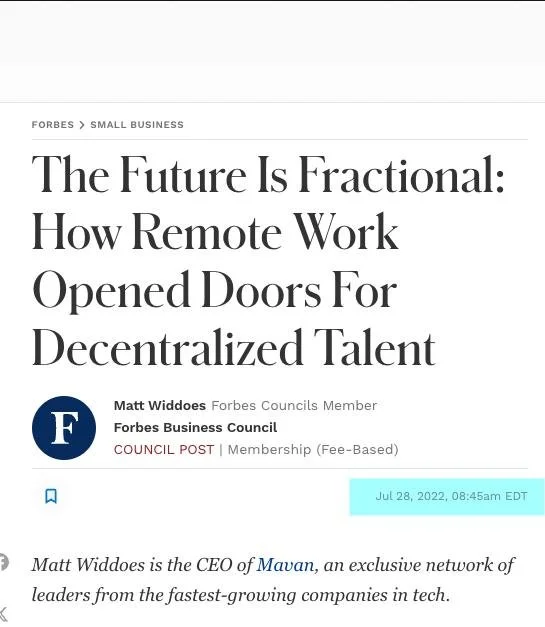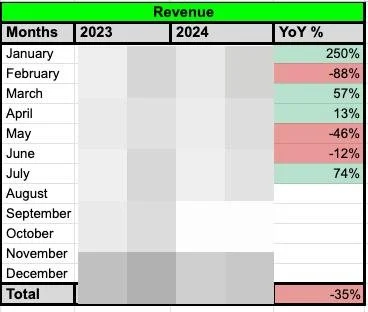Hey friends,
If you meet me on the streets, ask, "What keeps you up at night?" here is what I'd answer:
I want to navigate the future of work trends and offer solutions to early-stage startups for building effective sales teams.
The fractional revolution is already here.
We all know it. Forbes was writing about it back in 2022.

I've experienced it firsthand.
Despite working fewer hours this year due to personal projects, I've increased my revenue almost every month compared to last year.

The demand is there, especially for early-stage startups that don't have the time or money to afford full-time executives.
But there's another emerging trend I'm hearing about: Fractional PODs.
A POD is a cross-functional sales team (including SDRs, AEs, a VP of Sales, GTM engineer, Marketing, and Customer Success) that can serve a startup or scale-up without the high cost of full-time employees.
Imagine this: I'm a CEO and the founder of a $3M ARR startup. I want to hire 2 SDRs and 1 AE to expand into a new market or test my product's viability.
Today's option: You start hiring, onboarding, and ramping up the team. This process takes at least 12 months to see any return on investment.
Tomorrow's option: A vetted POD of SDRs and AEs, supervised by a fractional VP of Sales, ready to work for you freelance.
It seems like an obvious choice, right?
However, the main challenge is talent.
While finding fractional executives is more accessible now, finding great individual contributors who want to work fractionally is more complex but not impossible.
I'm less worried about the impact of a fractional team on performance.
They will perform even better with the right tools, training, and onboarding than an internal team.
In summary, it's hard to predict the future.
Still, I foresee companies spending much less on full-time employees and more on freelancers or fractional teams.
This approach suits the new generation who value the freedom to travel and work for passion rather than just money.
It also benefits organisations that can achieve the same or better results at a fraction of the cost.
You might wonder: Will a company's culture suffer from this change?
A Series A CEO and CRO of a scaleup with an entirely freelance operations team told me there is no difference in bonding, passion, and culture fit between freelancers and full-timers.
So, I don't foresee the impact on the company's culture due to this change
Question for you know:
Would you consider a fractional team (POD) and externalising your entire sales team?
Reply to this email - I'd love to hear your thoughts.
Thanks for reading this far. I will see you all next week.